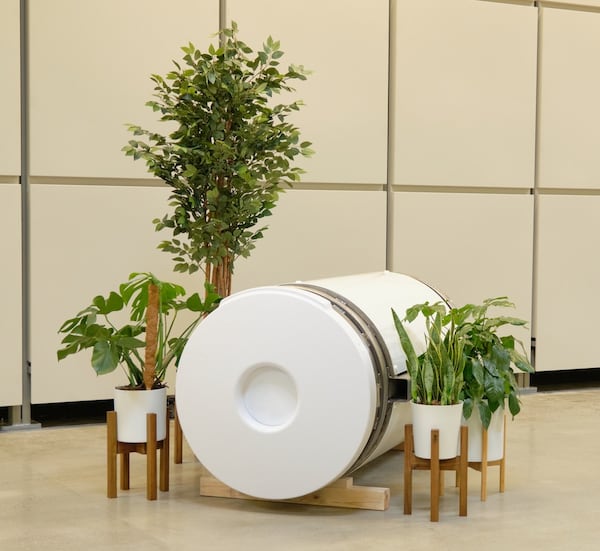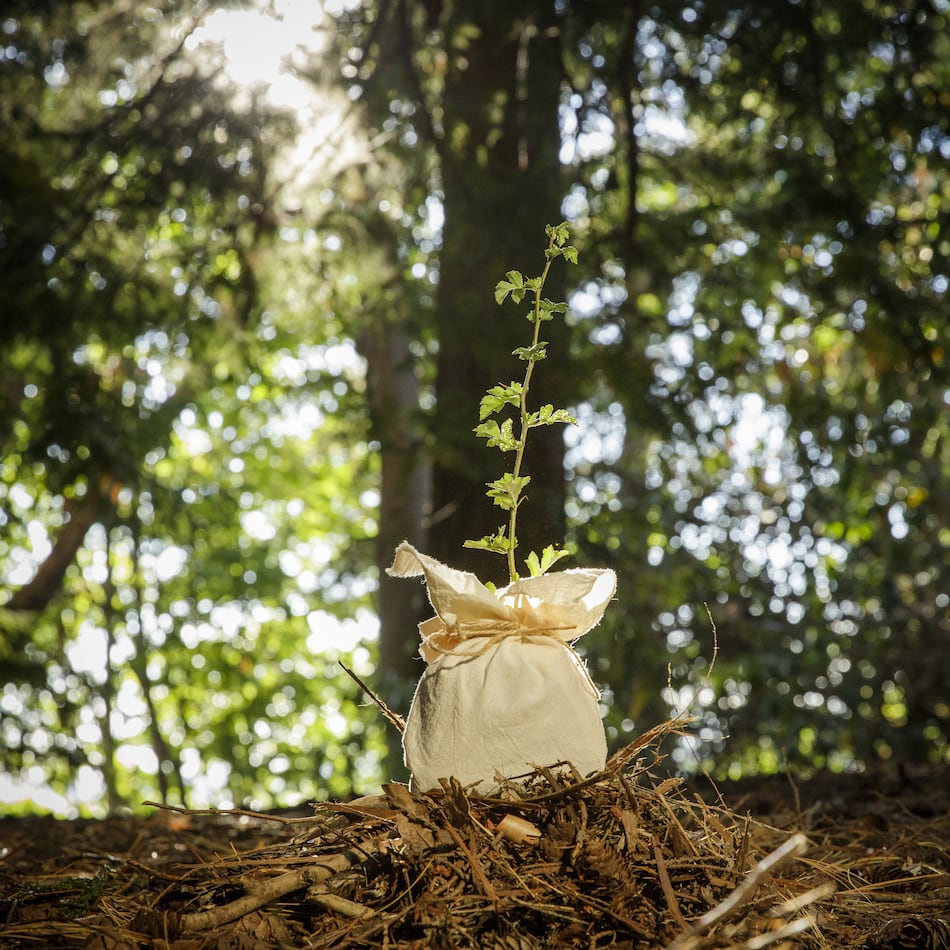August Elliott says he’d never thought much about what he’d like done with his body after his death.
Then, about two years ago, Elliott’s father died after a long battle with cancer. As he grieved, Elliott — a 58-year-old Sandy Springs resident — was also thrust into tying up the loose ends of his father’s life. That included cleaning out his home, but also figuring out what to do with his father’s remains.
Elliott said his dad had purchased a policy to cover the cost of cremation, but he still had to secure a plot and arrange a burial. All the logistics led Elliott to explore what other end-of-life options are out there.
That’s when he said he came across a story about “human composting,” or “terramation,” as it’s sometimes called. With the help of microbes, organic matter and specialized vessels, the process speeds up the natural decomposition of human remains. At the end of the process, families are left with nutrient-rich soil they can use to garden, plant trees or donate to conservation lands.
Now, Elliott and other Georgians interested in giving back to the Earth after death could soon do it here in the Peach State.
On Friday, Gov. Brian Kemp signed Senate Bill 241, which officially recognizes human composting as a legal method for disposing of a deceased person’s body in Georgia.
The law, which takes effect July 1, amends existing state rules for funeral directors, embalmers and crematories. It outlines the requirements for human composting facilities and directs the State Board of Funeral Service to develop guidelines for licensing them, among many other provisions.
In legalizing human composting, Georgia joins several other states that have already approved the practice, including California, Colorado and Washington.
For now, Georgians interested in having their body transformed into dirt after death still must have their remains shipped to other states where it’s legal, adding to the expense and logistics. But the new bill becoming law now opens the door for these facilities to open in Georgia.
Credit: Earth Funeral
Credit: Earth Funeral
Haley Morris, the director of communications and government affairs for Earth Funeral — a funeral home with human composting facilities in Washington state and Nevada — said it makes sense to have an option available that’s more “environmentally friendly.”
Most crematories in the U.S. burn natural gas, contributing more of the greenhouse gases that are causing global warming to the atmosphere. According to the federal Environmental Protection Agency, the process of turning human remains to ash can also emit harmful particulate matter and mercury, which is used in tooth fillings.
Terramation proponents say the process also eliminates the need for land and materials, such as coffins and headstones, which interment at a cemetery typically requires.
“This is obviously one of the most personal choices you can make,” said Morris. “I think it brings people a lot of solace when they can have their final act on Earth leave a really positive legacy.”
The price of human composting services vary by company, but costs are generally around $5,000, excluding the expense of shipping a body to a licensed facility. That’s more expensive than basic cremation, but adding in the cost of urns and other funeral services, they are roughly the same price. A traditional burial is typically a more expensive option.
Businesses that pushed for the method to be legalized in Georgia say they’re now exploring building facilities here or in other locations on the East Coast.
Micah Truman, the CEO and founder of Return Home, which also turns human remains into compost, praised the bill’s signing and said the company is “laying the groundwork” to open a facility in Atlanta.
“We’ve proudly served Georgia families through both pre-planning and immediate need care, and remain committed to expanding access to this gentle, transparent option while continuing to care for families across the state,” Truman said in a statement.
As for Elliott, he said hasn’t made a final decision about whether human composting is right for him. Still, he said the “holistic” nature of it is appealing.
“It really is ashes to ashes,” he said.
About the Author
Keep Reading
The Latest
Featured





